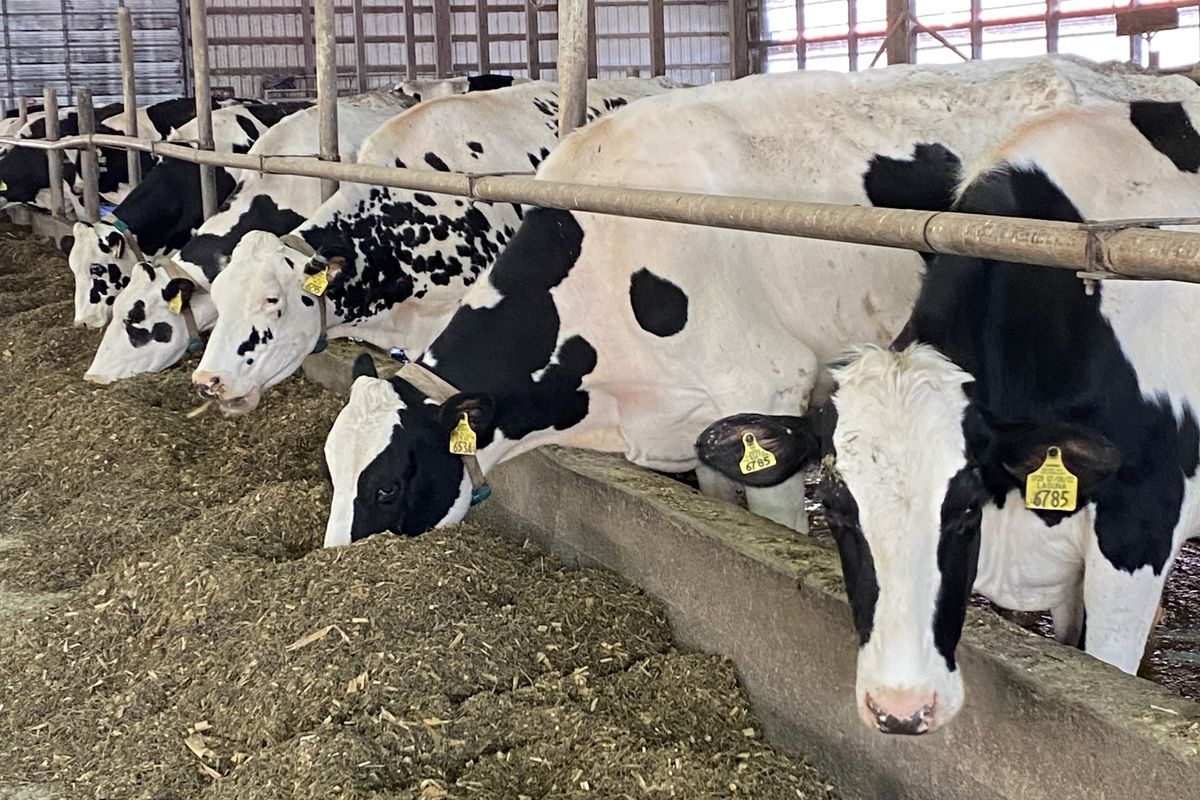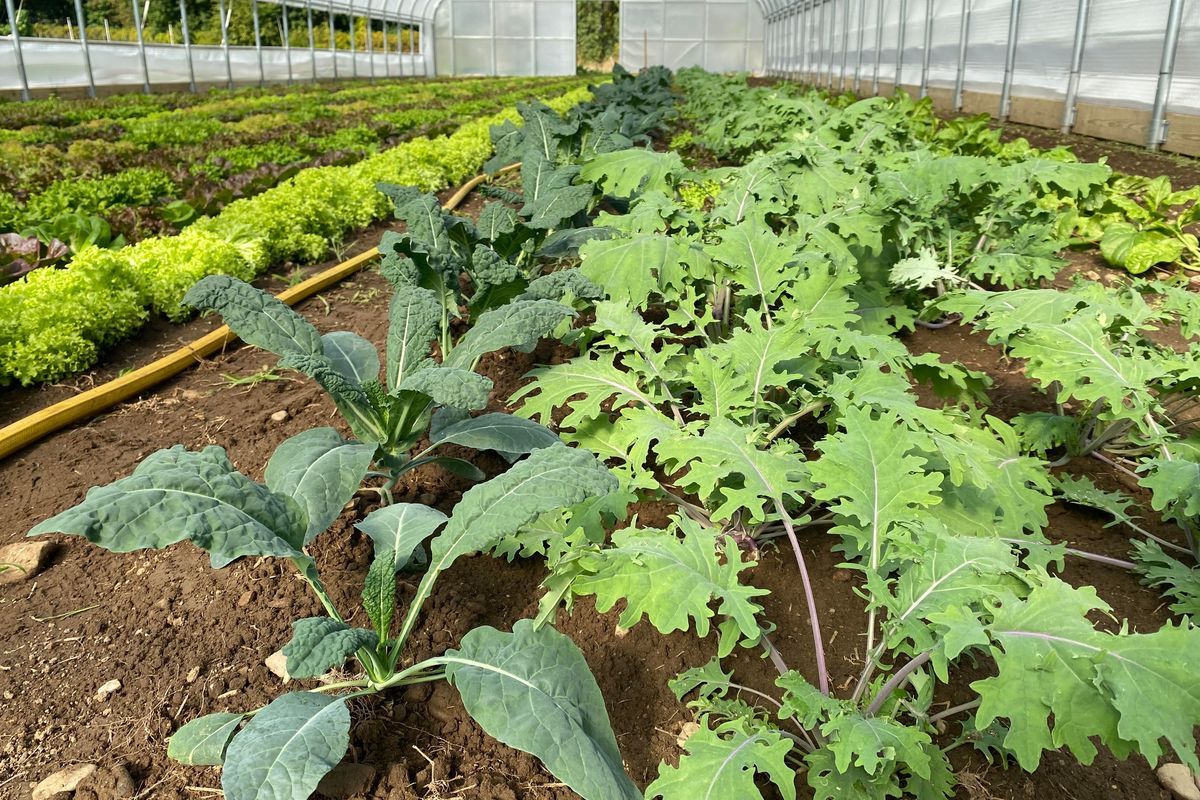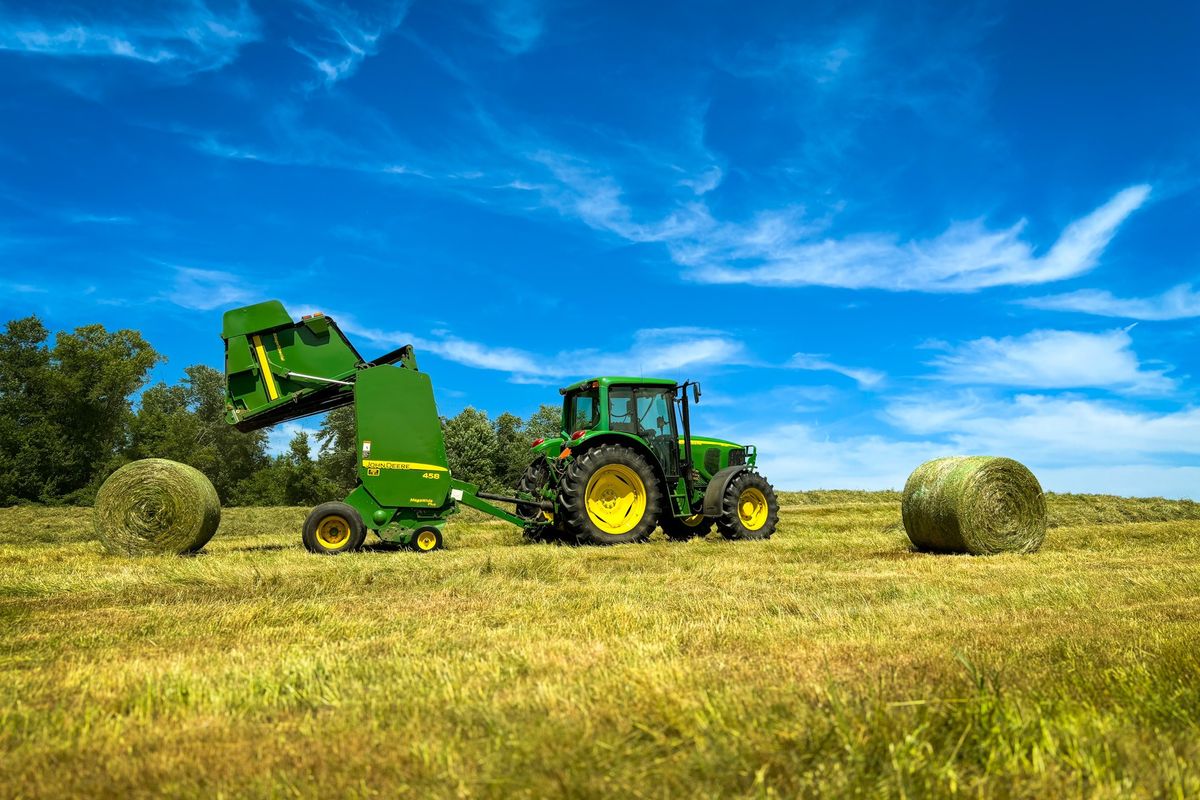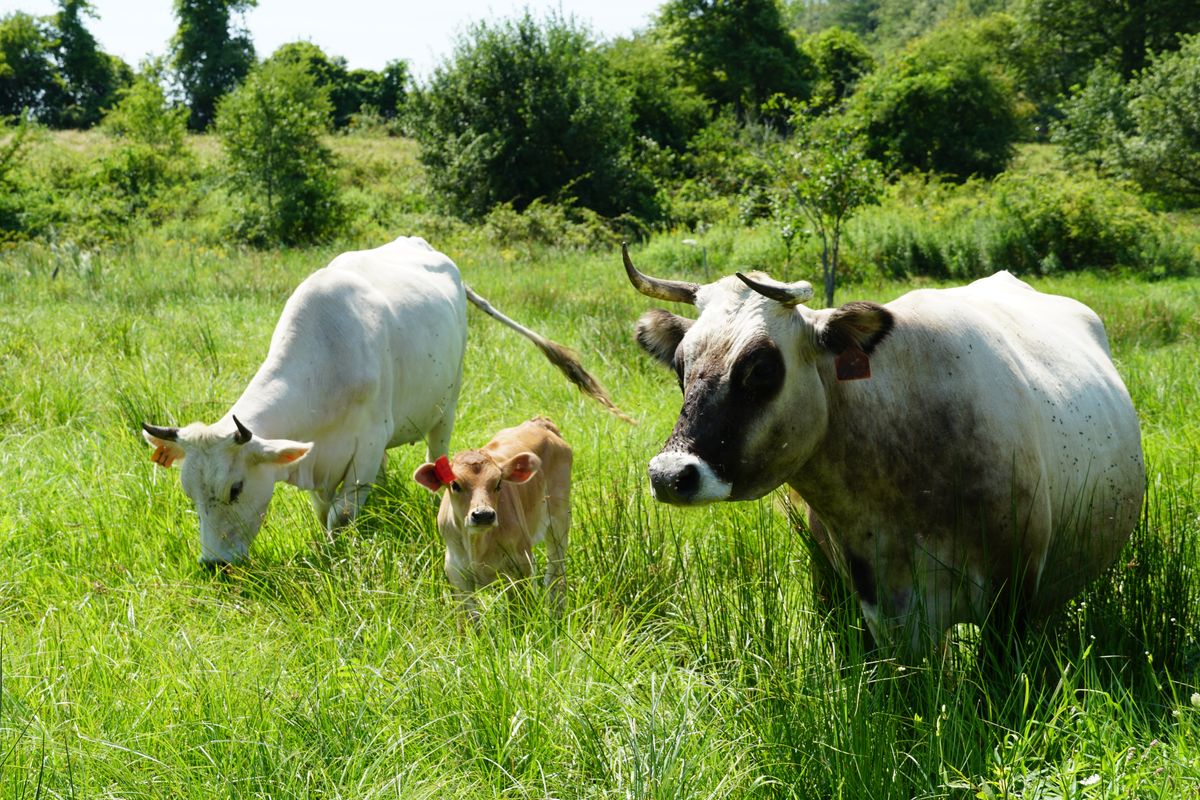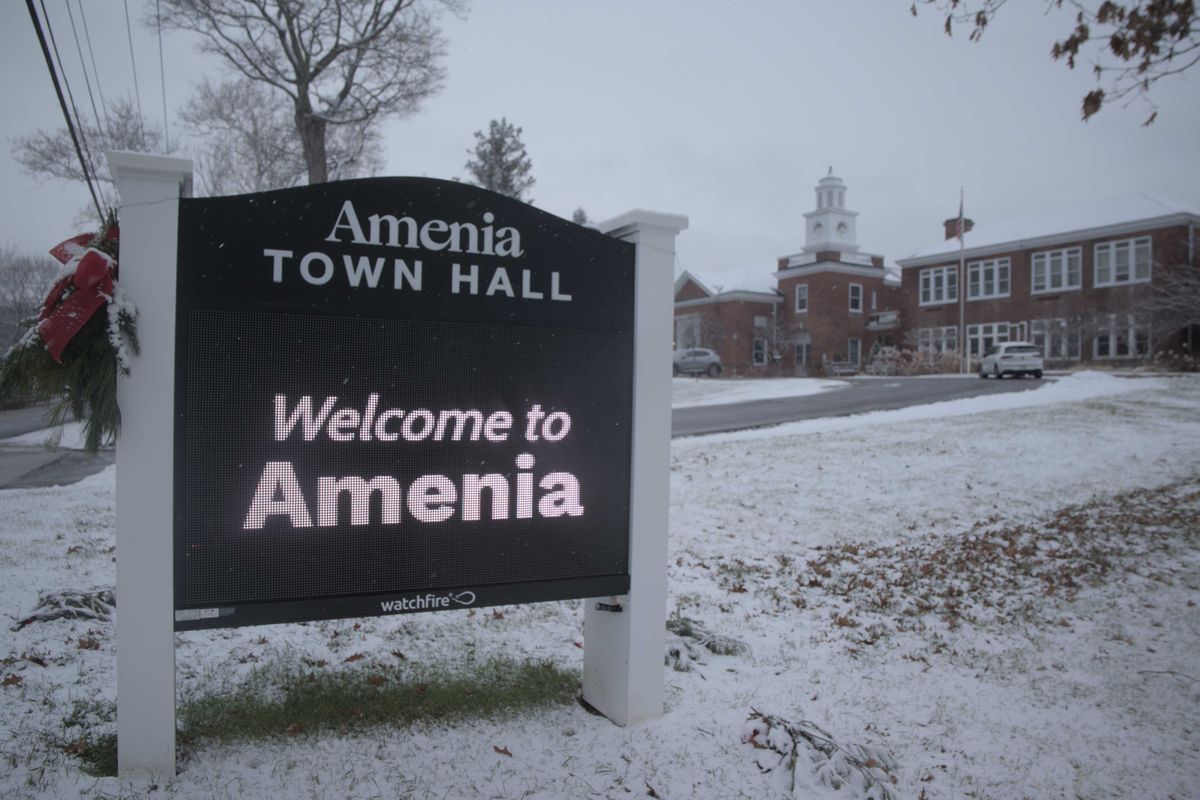Letter from the farm: Is it harvest time yet?
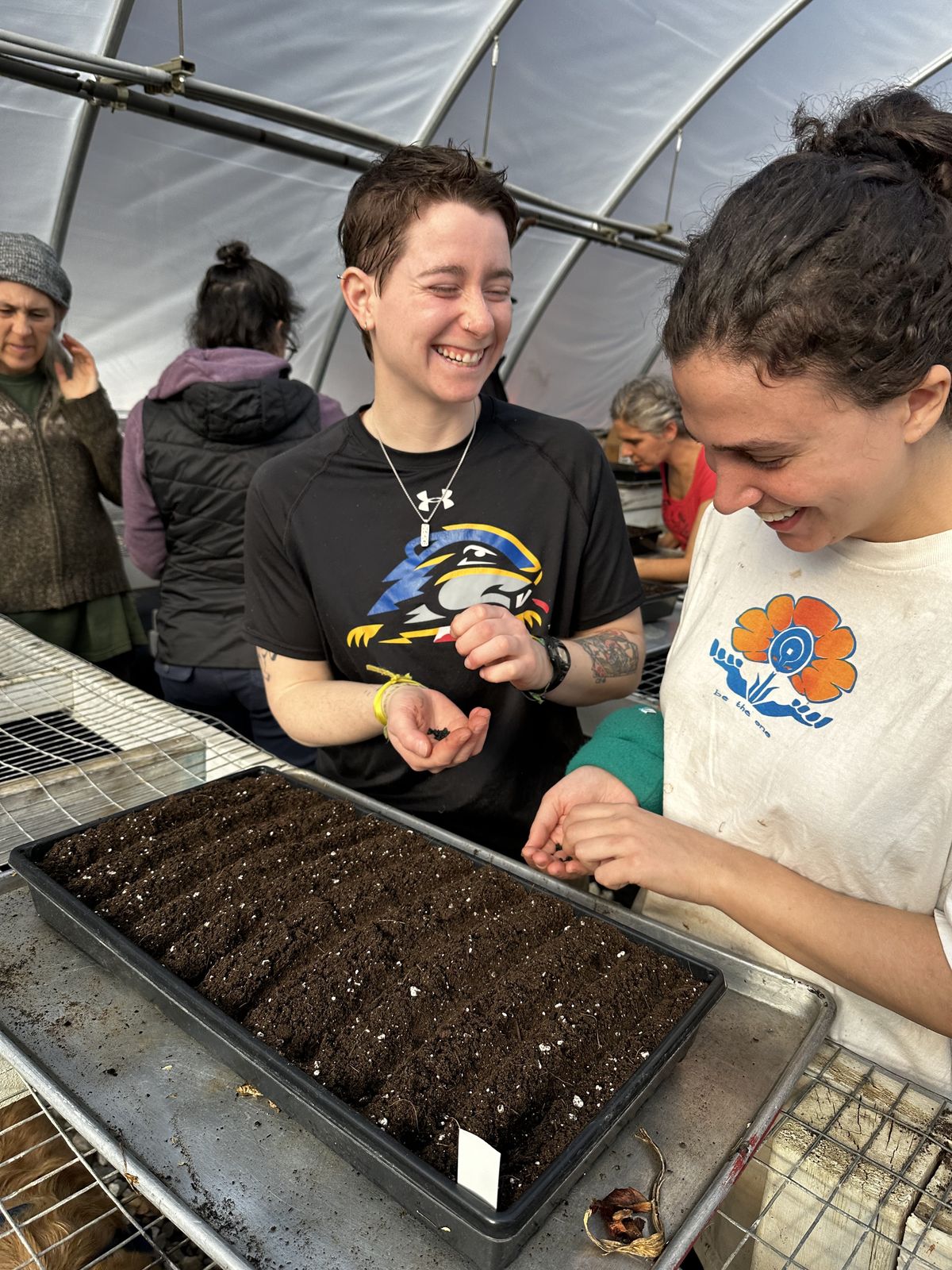
Lia Oren and Talia Schechet seed onions in the greenhouse at Adamah Farm in Falls Village, Conn., extending our region’s short growing season by producing seedlings ready to plant as the soil warms.
Janna Siller
 Members of the winter crew at Adamah Farm, Imogen Lubin, Miki Benson, and Denean Ritchie, enjoy some signs of resilience through this season’s volatile weather — a leek that managed to survive the winter and a six-leaf clover!Janna Siller
Members of the winter crew at Adamah Farm, Imogen Lubin, Miki Benson, and Denean Ritchie, enjoy some signs of resilience through this season’s volatile weather — a leek that managed to survive the winter and a six-leaf clover!Janna Siller
